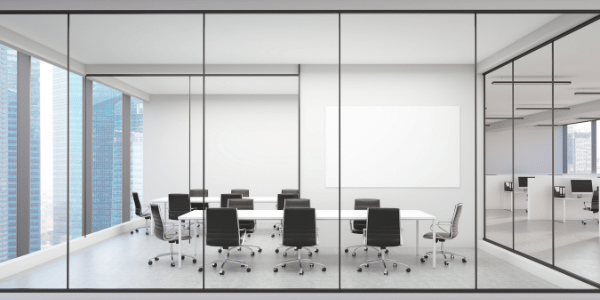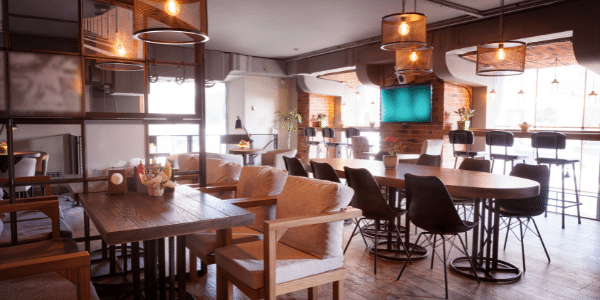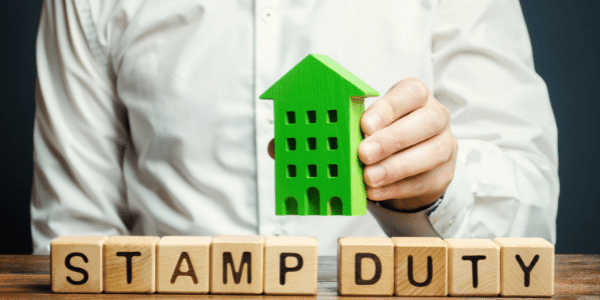When most Singaporeans think of investing in property, they typically turn to residential properties, before starting to worry about other issues like Additional Buyer Stamp Duty (ABSD), alongside a volatile tenancy market. But what if these issues could be minimised if you turn to another property sub-market, and invest in commercial properties instead? If you’re sceptical, keep reading because this article will tell you 7 reasons why you should invest in commercial properties today.
1. Upkeep and furnishing of properties
For most residential properties, the typical market practice is for landlords to renovate the apartment and provide basic furnishing prior to renting it out. In contrast, the common practice for commercial properties is to lease out the bare premises. Tenants are expected to renovate/refurbish the property, and often have the duty to reinstate the property to its original state before returning to the landlord.

2. Switching Costs
Tenants in the residential market are very price sensitive, simply because there are a lot of substitutes and it doesn’t really cost much for one to move. However, it could be rather costly for a commercial tenant to move, due to tangible and intangible costs.
Example
Lucy owns a café and is currently renting the premises at $11,000 monthly. However, her landlord wants to raise the rental rates to $14,000 monthly. Fortunately, Lucy has managed to find another unit nearby, with expected rental of $11,000 monthly which would mean that she can save on the $3000 rise in rental rates. Yet, she may not choose to move due to high renovation costs, installation costs of kitchen equipment and the incurred costs to reinstate the current unit to its original status. Aside from these tangible costs, the intangible opportunity cost of losing customers and having lower footfall may also dissuade her from moving.
Simply put, commercial tenants are much less price sensitive as there is higher sunk cost in the unit they have leased. Additionally, the intangible costs for retail tenants are also significantly higher, making them less likely to move despite rental hikes.

3. Affordability
While we would all like to think we can invest in any property we set our eyes on, reality may be cruel. Owning a property can be incredibly expensive, especially for residential properties.
Currently, the cheapest Condominiums are priced at $500,000. In contrast, the lowest priced commercial properties are only roughly $150,000. ABSD aside, Commercial could be a more viable option for those on a budget or wish to spread out their investments.

4. Diversification
Speaking of spreading out investments, have you wondered if it would be safer to have 1 investment property worth $2 million, or 4 properties adding up to a total value of $2 million?
Since there are only 2 outcomes to leasing a property – success or failure (i.e., a binary decision), the risks of not renting out each property is 50%. On the other hand, the chances of not renting out all 4 properties is merely 6.25%. Thus, it is more advisable to not put all of your eggs in one basket and diversify your investments to reduce costs.
In this aspect, investors are more likely to turn to commercial properties, as it is easier to find more affordable investments in this sub property market compared to residential markets. Moreover, there is no taxes due on owning multiple commercial properties.

5. Demand & Supply
A basic concept that many know is that strong demand and weak supply would drive prices up. But not many know that this also applies to commercial properties in Singapore today. In fact, the weak supply has also contributed to the ease of leasing out with lesser advertising and marketing efforts.

6. Additional Buyer Stamp Duty (ABSD)
Commercial properties are also appealing as there is no ABSD imposed. ABSD is aimed at cooling the residential market, as housing affordability is an important consideration for the government. In contrast, there are less qualms about cooling the commercial property market as it does not directly impact our nation building. Without additional taxes in the form of ABSD, there will be less erosion of your Return on Investment (ROI).

7. Seller Stamp Duty (SSD)
Another perk of buying commercial property is that SSD is not applicable for commercial properties, striking out yet another tax that could erode your investment returns. Better yet, it suggests of the possibility of flipping properties – a concept that residential investors could only dream of.
One example is to purchase an International Plaza unit now at $1.36 million. Given the grandeur of one of the largest mixed-use in Singapore, International Plaza is likely to be the largest en-bloc if successful, giving a potential ROI of 26% based on past tenders and the reserve price. Generally, an ROI of above 10% would be great news for investors. With the windfall gains of 26%, the concept of flipping commercial properties is undoubtedly attractive to us!
If you are keen on purchasing properties for investment purposes, commercial properties are truly an appealing alternative to residential properties. While residential properties also have their pros, commercial properties generally have a rental market that is less price-sensitive and carries high potential for better rental yield. Most of us are fixated at the residential market because it is a property market that we know best and is most intertwined with our lives. Yet, the upsides of commercial property are undeniably attractive. Thus, if you are interested in investing in commercial properties but have no idea where to start, consider speaking to one of our mortgage advisors for personalised advice.
Want to find the best mortgage rate in town? Check out our free comparison service to learn more!
Read more of our posts below!

